30+ [Must Read] Popular Books On Literary Criticism
Discover the list of some best books written on Literary Criticism by popular award winning authors. These book on topic Literary Criticism highly popular among the readers worldwide.

Rating: 4.13/5
A Room of One's Own is an extended essay by Virginia Woolf. First published on the 24th of October, 1929, the essay was based on a series of lectures she delivered at Newnham College and Girton College, two women's colleges at Cambridge University in October 1928. While this extended essay in fact employs a fictional narrator and narrative to explore women both as writers A Room of One's Own is an extended essay by Virginia Woolf. First published on the 24th of October, 1929, the essay was based on a series of lectures she delivered at Newnham College and Girton College, two women's colleges at Cambridge University in October 1928. While this extended essay in fact employs a fictional narrator and narrative to explore women both as writers of and characters in fiction, the manuscript for the delivery of the series of lectures, titled Women and Fiction, and hence the essay, are conside ... [Read More]
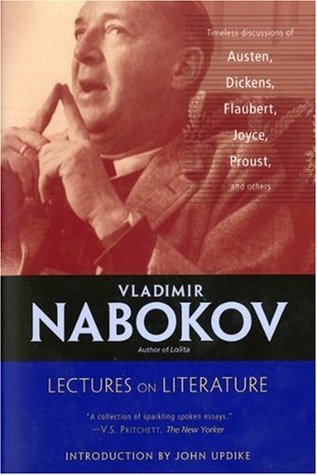
Rating: 4.33/5
For two decades, first at Wellesley and then at Cornell, Nabokov introduced undergraduates to the delights of great fiction. Here, collected for the first time, are his famous lectures, which include Mansfield Park, Bleak House, and Ulysses. Edited and with a Foreword by Fredson Bowers; Introduction by John Updike; illustrations. ... [Read More]

Rating: 4.29/5
Studies on contemporary art and culture by one of the most original, critical and analytical minds of this century. Illuminations includes Benjamin's views on Kafka, with whom he felt the closest personal affinity, his studies on Baudelaire and Proust (both of whom he translated), his essays on Leskov and on Brecht's Epic Theater. Also included are his penetrating study on Studies on contemporary art and culture by one of the most original, critical and analytical minds of this century. Illuminations includes Benjamin's views on Kafka, with whom he felt the closest personal affinity, his studies on Baudelaire and Proust (both of whom he translated), his essays on Leskov and on Brecht's Epic Theater. Also included are his penetrating study on "The Work of Art in the Age of Mechanical Reproduction," an illuminating discussion of translation as a literary mode, and his thesis on ... [Read More]
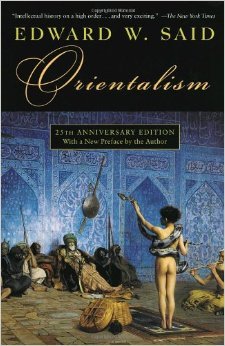
Rating: 4.09/5
More than three decades after its first publication, Edward Said's groundbreaking critique of the West's historical, cultural, and political perceptions of the East has become a modern classic. In this wide-ranging, intellectually vigorous study, Said traces the origins of "orientalism" to the centuries-long period during which Europe dominated the Middle and Near East and, More than three decades after its first publication, Edward Said's groundbreaking critique of the West's historical, cultural, and political perceptions of the East has become a modern classic. In this wide-ranging, intellectually vigorous study, Said traces the origins of "orientalism" to the centuries-long period during which Europe dominated the Middle and Near East and, from its position of power, defined "the orient" simply as "other than" the occident. This entrenched view continues to dominate western ... [Read More]

Rating: 3.59/5
Information is endlessly available to us; where shall wisdom be found?" is the crucial question with which renowned literary critic Harold Bloom begins this impassioned book on the pleasures and benefits of reading well. For more than forty years, Bloom has transformed college students into lifelong readers with his unrivaled love for literature. Now, at a time when faster Information is endlessly available to us; where shall wisdom be found?" is the crucial question with which renowned literary critic Harold Bloom begins this impassioned book on the pleasures and benefits of reading well. For more than forty years, Bloom has transformed college students into lifelong readers with his unrivaled love for literature. Now, at a time when faster and easier electronic media threatens to eclipse the practice of reading, Bloom draws on his experience as critic, teacher, and prolific reader t ... [Read More]

Rating: 4.08/5
Striking out at the conception of criticism as restricted to mere opinion or ritual gesture, Northrop Frye wrote this magisterial work proceeding on the assumption that criticism is a structure of thought and knowledge in its own right. Employing examples of world literature from ancient times to the present, he provides a conceptual framework for the examination of litera Striking out at the conception of criticism as restricted to mere opinion or ritual gesture, Northrop Frye wrote this magisterial work proceeding on the assumption that criticism is a structure of thought and knowledge in its own right. Employing examples of world literature from ancient times to the present, he provides a conceptual framework for the examination of literature. In four brilliant essays on historical, ethical, archetypical, and rhetorical criticism, he applies "scientific" method in an effort to chan ... [Read More]

Rating: 3.65/5
What does it mean when a fictional hero takes a journey? Shares a meal? Gets drenched in a sudden rain shower? Often, there is much more going on in a novel or poem than is readily visible on the surface -- a symbol, maybe, that remains elusive, or an unexpected twist on a character -- and there's that sneaking suspicion that the deeper meaning of a literary text keeps esc What does it mean when a fictional hero takes a journey? Shares a meal? Gets drenched in a sudden rain shower? Often, there is much more going on in a novel or poem than is readily visible on the surface -- a symbol, maybe, that remains elusive, or an unexpected twist on a character -- and there's that sneaking suspicion that the deeper meaning of a literary text keeps escaping you.In this practical and amusing guide to literature, Thomas C. Foster shows how easy and gratifying it is to unlock those hidden truths, a ... [Read More]

Rating: 3.98/5
In the tradition of E. M. Forster's Aspects of the Novel and Milan Kundera's The Art of the Novel, How Fiction Works is a scintillating study of the magic of fiction--an analysis of its main elements and a celebration of its lasting power. Here one of the most prominent and stylish critics of our time looks into the machinery of storytelling to ask some fundamental questio In the tradition of E. M. Forster's Aspects of the Novel and Milan Kundera's The Art of the Novel, How Fiction Works is a scintillating study of the magic of fiction--an analysis of its main elements and a celebration of its lasting power. Here one of the most prominent and stylish critics of our time looks into the machinery of storytelling to ask some fundamental questions: What do we mean when we say we "know" a fictional character? What constitutes a telling detail? When is a metaphor successful? Is Realism real ... [Read More]

Rating: 4.19/5
An analysis of Victorian women writers, this pathbreaking book of feminist literary criticism is now reissued with a substantial new introduction by Sandra Gilbert and Susan Gubar that reveals the origins of their revolutionary realization in the 1970s that "the personal was the political, the sexual was the textual." Contents: The Queen's looking glass: female creativity, m An analysis of Victorian women writers, this pathbreaking book of feminist literary criticism is now reissued with a substantial new introduction by Sandra Gilbert and Susan Gubar that reveals the origins of their revolutionary realization in the 1970s that "the personal was the political, the sexual was the textual." Contents: The Queen's looking glass: female creativity, male images of women, and the metaphor of literary paternity -- Infection in the sentence: the women writer and the anxiety of authors ... [Read More]

Rating: 3.83/5
E.M. Forster's Aspects of the Novel is an innovative and effusive treatise on a literary form that, at the time of publication, had only recently begun to enjoy serious academic consideration. This Penguin Classics edition is edited with an introduction by Oliver Stallybrass, and features a new preface by Frank Kermode. First given as a series of lectures at Cambridge Unive E.M. Forster's Aspects of the Novel is an innovative and effusive treatise on a literary form that, at the time of publication, had only recently begun to enjoy serious academic consideration. This Penguin Classics edition is edited with an introduction by Oliver Stallybrass, and features a new preface by Frank Kermode. First given as a series of lectures at Cambridge University, Aspects of the Novel is Forster's analysis of this great literary form. Here he rejects the 'pseudoscholarship' of historical criti ... [Read More]

Rating: 4.02/5
"The indispensable critic on the indispensable writer." -Geoffrey O'Brien, New York Review of Books. A landmark achievement as expansive, erudite, and passionate as its renowned author, Shakespeare: The Invention of the Human is the culmination of a lifetime of reading, writing about, and teaching Shakespeare. Preeminent literary critic-and ultimate authority on the wester "The indispensable critic on the indispensable writer." -Geoffrey O'Brien, New York Review of Books. A landmark achievement as expansive, erudite, and passionate as its renowned author, Shakespeare: The Invention of the Human is the culmination of a lifetime of reading, writing about, and teaching Shakespeare. Preeminent literary critic-and ultimate authority on the western literary tradition-Harold Bloom leads us through a comprehensive reading of every one of the dramatist's plays, brilliantly illuminating each wo ... [Read More]

Rating: 3.82/5
‘The plot is the source and the soul of tragedy’ In his near-contemporary account of Greek tragedy, Aristotle examines the dramatic elements of plot, character, language and spectacle that combine to produce pity and fear in the audience, and asks why we derive pleasure from this apparently painful process. Taking examples from the plays of Aeschylus, Sophocles and Euripide ‘The plot is the source and the soul of tragedy’ In his near-contemporary account of Greek tragedy, Aristotle examines the dramatic elements of plot, character, language and spectacle that combine to produce pity and fear in the audience, and asks why we derive pleasure from this apparently painful process. Taking examples from the plays of Aeschylus, Sophocles and Euripides, The Poetics introduces into literary criticism such central concepts as mimesis (‘imitation’), hamartia (‘error’), and ... [Read More]

Rating: 4.25/5
A half-century after its translation into English, Erich Auerbach's "Mimesis" still stands as a monumental achievement in literary criticism. A brilliant display of erudition, wit, and wisdom, his exploration of how great European writers from Homer to Virginia Woolf depicted reality has taught generations how to read Western literature. This new expanded edition includes A half-century after its translation into English, Erich Auerbach's "Mimesis" still stands as a monumental achievement in literary criticism. A brilliant display of erudition, wit, and wisdom, his exploration of how great European writers from Homer to Virginia Woolf depicted reality has taught generations how to read Western literature. This new expanded edition includes a substantial essay in introduction by Edward Said as well as an essay, never before translated into English, in which Auerbach responds to his cri ... [Read More]

Rating: 3.87/5
Literary critic Harold Bloom's The Western Canon is more than a required reading list-it is a vision. Infused with a love of learning, compelling in its arguments for a unifying written culture, it argues brilliantly against the politicization of literature and presents a guide to the great works of the western literary tradition and essential writers of the ages. The West Literary critic Harold Bloom's The Western Canon is more than a required reading list-it is a vision. Infused with a love of learning, compelling in its arguments for a unifying written culture, it argues brilliantly against the politicization of literature and presents a guide to the great works of the western literary tradition and essential writers of the ages. The Western Canon was nominated for the National Book Critics Circle Award. ...more ... [Read More]

Rating: 3.94/5
Written in 1982, this work appeared, as Professor Eagleton explains, at the watershed of two very different decades. It could not anticipate what was to come after, neither could it grasp what had happened in literary theory in the light of where it was to lead. ... [Read More]

Rating: 4.13/5
From one of America's most exciting historians, the astonishing life and times of Joseph Conrad, a visionary guide to the turbulent age of globalization Shakespeare and the Elizabethans, Goethe and the Romantics - great artists can become tutelary spirits for their age. As Maya Jasanoff argues, Joseph Conrad did not merely embody the soul of his time, he anticipated our own From one of America's most exciting historians, the astonishing life and times of Joseph Conrad, a visionary guide to the turbulent age of globalization Shakespeare and the Elizabethans, Goethe and the Romantics - great artists can become tutelary spirits for their age. As Maya Jasanoff argues, Joseph Conrad did not merely embody the soul of his time, he anticipated our own. Through his journeys from Poland to France, England to Malaysia, Belgium to Congo, he witnessed a turning point in international history ... [Read More]

Rating: 4.43/5
Reading great literature well has the power to cultivate virtue. Great literature increases knowledge of and desire for the good life by showing readers what virtue looks like and where vice leads. It is not just what one reads but how one reads that cultivates virtue. Reading good literature well requires one to practice numerous virtues, such as patience, diligence, and Reading great literature well has the power to cultivate virtue. Great literature increases knowledge of and desire for the good life by showing readers what virtue looks like and where vice leads. It is not just what one reads but how one reads that cultivates virtue. Reading good literature well requires one to practice numerous virtues, such as patience, diligence, and prudence. And learning to judge wisely a character in a book, in turn, forms the reader's own character. Acclaimed author Karen Swallow Prior ta ... [Read More]

Rating: 3.39/5
The world first publication of a previously unknown work of fantasy by J.R.R. Tolkien, which tells the powerful story of a doomed young man who is sold into slavery and who swears revenge on the magician who killed his father. Kullervo son of Kalervo is perhaps the darkest and most tragic of all J.R.R. Tolkien’s characters. ‘Hapless Kullervo’, as Tolkien called him, is a lu The world first publication of a previously unknown work of fantasy by J.R.R. Tolkien, which tells the powerful story of a doomed young man who is sold into slavery and who swears revenge on the magician who killed his father. Kullervo son of Kalervo is perhaps the darkest and most tragic of all J.R.R. Tolkien’s characters. ‘Hapless Kullervo’, as Tolkien called him, is a luckless orphan boy with supernatural powers and a tragic destiny. Brought up in the homestead of the dark magician Untamo, w ... [Read More]

Rating: 3.95/5
A best-selling author and world-renowned bibliophile meditates on his vast personal library and champions the vital role of all libraries In June 2015 Alberto Manguel prepared to leave his centuries-old village home in France’s Loire Valley and reestablish himself in a one-bedroom apartment on Manhattan’s Upper West Side. Packing up his enormous, 35,000‑volume personal lib A best-selling author and world-renowned bibliophile meditates on his vast personal library and champions the vital role of all libraries In June 2015 Alberto Manguel prepared to leave his centuries-old village home in France’s Loire Valley and reestablish himself in a one-bedroom apartment on Manhattan’s Upper West Side. Packing up his enormous, 35,000‑volume personal library, choosing which books to keep, store, or cast out, Manguel found himself in deep reverie on the nature of relationships b ... [Read More]

Rating: 3.9/5
The most influential story in Western cultural history, the biblical account of Adam and Eve is now treated either as the sacred possession of the faithful or as the butt of secular jokes. Here, acclaimed scholar Stephen Greenblatt explores it with profound appreciation for its cultural and psychological power as literature. From the birth of the Hebrew Bible to the awe-in The most influential story in Western cultural history, the biblical account of Adam and Eve is now treated either as the sacred possession of the faithful or as the butt of secular jokes. Here, acclaimed scholar Stephen Greenblatt explores it with profound appreciation for its cultural and psychological power as literature. From the birth of the Hebrew Bible to the awe-inspiring contributions of Augustine, Dürer, and Milton in bringing Adam and Eve to vivid life, Greenblatt unpacks the story’s many interpretatio ... [Read More]

Rating: 4.2/5
An impassioned call for a return to reading poetry and an incisive argument for poetry’s accessibility to all readers, by critically acclaimed poet Matthew Zapruder In Why Poetry, award-winning poet Matthew Zapruder takes on what it is that poetry—and poetry alone—can do. Zapruder argues that the way we have been taught to read poetry is the very thing that prevents us from An impassioned call for a return to reading poetry and an incisive argument for poetry’s accessibility to all readers, by critically acclaimed poet Matthew Zapruder In Why Poetry, award-winning poet Matthew Zapruder takes on what it is that poetry—and poetry alone—can do. Zapruder argues that the way we have been taught to read poetry is the very thing that prevents us from enjoying it. In lively, lilting prose, he shows us how that misunderstanding interferes with our direct experience of poetry ... [Read More]

Rating: 4.27/5
When the New York Times referred to Ursula K. Le Guin as America’s greatest writer of science fiction, they just might have undersold her legacy. It’s hard to look at her vast body of work?novels and stories across multiple genres, poems, translations, essays, speeches, and criticism?and see anything but one of our greatest writers, period. In a series of interviews with Da When the New York Times referred to Ursula K. Le Guin as America’s greatest writer of science fiction, they just might have undersold her legacy. It’s hard to look at her vast body of work?novels and stories across multiple genres, poems, translations, essays, speeches, and criticism?and see anything but one of our greatest writers, period. In a series of interviews with David Naimon (Between the Covers), Le Guin discusses craft, aesthetics, and philosophy in her fiction, poetry, and nonfictio ... [Read More]

Rating: 3.7/5
From Colm Tóibín, the formidable award-winning author of The Master and Brooklyn, an illuminating, intimate study of Irish culture, history, and literature told through the lives and work of three men—William Wilde, John Butler Yeats, and John Stanislaus Joyce—and the complicated, influential relationships they had with their complicated sons. Colm Tóibín begins his incisiv From Colm Tóibín, the formidable award-winning author of The Master and Brooklyn, an illuminating, intimate study of Irish culture, history, and literature told through the lives and work of three men—William Wilde, John Butler Yeats, and John Stanislaus Joyce—and the complicated, influential relationships they had with their complicated sons. Colm Tóibín begins his incisive, revelatory Mad, Bad, Dangerous to Know with a walk through the Dublin streets where he went to university—a wide-eyed ... [Read More]
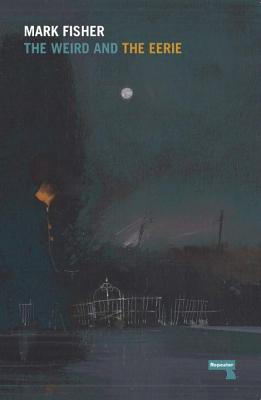
Rating: 4.09/5
What exactly are the Weird and the Eerie? In this new essay, Mark Fisher argues that some of the most haunting and anomalous fiction of the 20th century belongs to these two modes. The Weird and the Eerie are closely related but distinct modes, each possessing its own distinct properties. Both have often been associated with Horror, yet this emphasis overlooks the aching f What exactly are the Weird and the Eerie? In this new essay, Mark Fisher argues that some of the most haunting and anomalous fiction of the 20th century belongs to these two modes. The Weird and the Eerie are closely related but distinct modes, each possessing its own distinct properties. Both have often been associated with Horror, yet this emphasis overlooks the aching fascination that such texts can exercise. The Weird and the Eerie both fundamentally concern the outside and the unknown, which are not intrinsical ... [Read More]
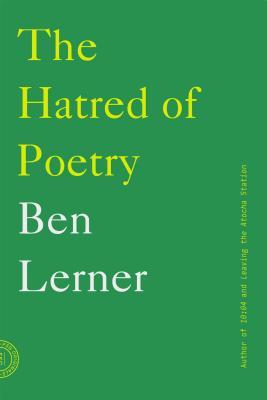
Rating: 3.81/5
No art has been denounced as often as poetry. It's even bemoaned by poets: "I, too, dislike it," wrote Marianne Moore. "Many more people agree they hate poetry," Ben Lerner writes, "than can agree what poetry is. I, too, dislike it and have largely organized my life around it and do not experience that as a contradiction because poetry and the hatred of poetry are inextric No art has been denounced as often as poetry. It's even bemoaned by poets: "I, too, dislike it," wrote Marianne Moore. "Many more people agree they hate poetry," Ben Lerner writes, "than can agree what poetry is. I, too, dislike it and have largely organized my life around it and do not experience that as a contradiction because poetry and the hatred of poetry are inextricable in ways it is my purpose to explore." In this inventive and lucid essay, Lerner takes the hatred of poetry as the starting point of his de ... [Read More]

Rating: 4.19/5
America's foremost novelist reflects on the themes that preoccupy her work and increasingly dominate national and world politics: race, fear, borders, the mass movement of peoples, the desire for belonging. What is race and why does it matter? What motivates the human tendency to construct Others? Why does the presence of Others make us so afraid? Drawing on her Norton Lect America's foremost novelist reflects on the themes that preoccupy her work and increasingly dominate national and world politics: race, fear, borders, the mass movement of peoples, the desire for belonging. What is race and why does it matter? What motivates the human tendency to construct Others? Why does the presence of Others make us so afraid? Drawing on her Norton Lectures, Toni Morrison takes up these and other vital questions bearing on identity in The Origin of Others. In her search for answers, the n ... [Read More]

Rating: 4.28/5
“[Astounding] is a major work of popular culture scholarship that science fiction fans will devour.” — Publishers Weekly "Alec Nevala-Lee has brilliantly recreated the era. . . . A remarkable work of literary history." — Robert Silverberg "Science fiction has been awaiting this history/biography for more than half a century. . . . Here it is. This is the most important histo “[Astounding] is a major work of popular culture scholarship that science fiction fans will devour.” — Publishers Weekly "Alec Nevala-Lee has brilliantly recreated the era. . . . A remarkable work of literary history." — Robert Silverberg "Science fiction has been awaiting this history/biography for more than half a century. . . . Here it is. This is the most important historical and critical work my field has ever seen. Alec Nevala-Lee’s superb scholarship and insight have made ... [Read More]

Rating: 4.12/5
In this luminous essay, Robert Macfarlane reflects on the unique emotional response resonance of books given and received - and how such gifts have shaped his own life. ... [Read More]
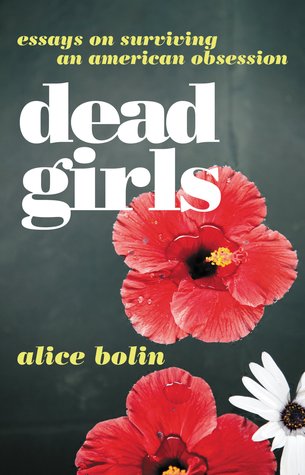
Rating: 3.09/5
A collection of poignant, perceptive essays that expertly blends the personal and political in an exploration of American culture through the lens of our obsession with dead women. In her debut collection, Alice Bolin turns a critical eye to literature and pop culture, the way media consumption reflects American society, and her own place within it. From essays on Joan Didi A collection of poignant, perceptive essays that expertly blends the personal and political in an exploration of American culture through the lens of our obsession with dead women. In her debut collection, Alice Bolin turns a critical eye to literature and pop culture, the way media consumption reflects American society, and her own place within it. From essays on Joan Didion and James Baldwin to Twin Peaks, Britney Spears, and Serial, Bolin illuminates our widespread obsession with women who are abused, kill ... [Read More]

Rating: 4.45/5
An inspiring collection of essays by black women writers, curated by the founder of the popular book club Well-Read Black Girl, on the importance of recognizing ourselves in literature. Remember that moment when you first encountered a character who seemed to be written just for you? That feeling of belonging can stick with readers the rest of their lives--but it doesn't co An inspiring collection of essays by black women writers, curated by the founder of the popular book club Well-Read Black Girl, on the importance of recognizing ourselves in literature. Remember that moment when you first encountered a character who seemed to be written just for you? That feeling of belonging can stick with readers the rest of their lives--but it doesn't come around as frequently for all of us. In this timely anthology, "well-read black girl" Glory Edim brings together original essays by some ... [Read More]